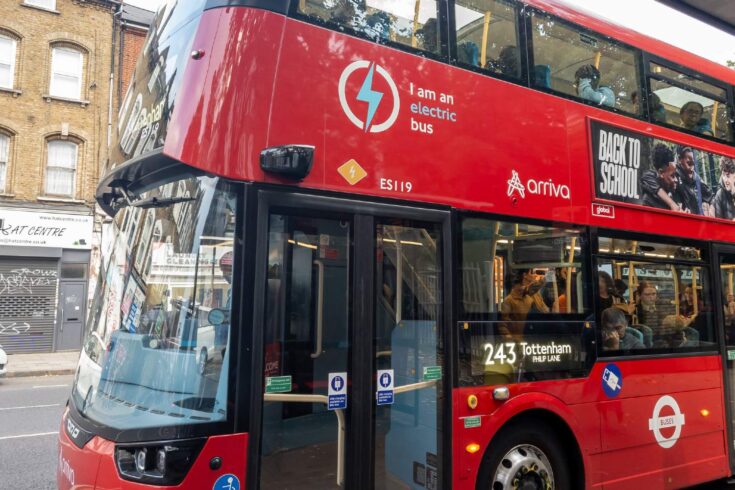A University of Bath study shows that while electric buses are cheaper to fuel and maintain than diesel, they can spend longer off the road due to:
- parts shortages
- the need for specialist repairs
This means operators, especially smaller and rural ones, may need spare vehicles to keep services running, adding to costs.
By tackling reliability, the UK could accelerate the shift to cleaner transport, reduce costs for operators, and ensure electric buses deliver dependable services nationwide.
Capital costs
Using real-world data from a UK bus operator, the researchers applied a total cost of ownership model over a 20-year period.
They found that electric fleet size requirements increase by roughly 18 to 23% for every 10-percentage-point drop in availability compared to diesel buses.
At 85% availability, operators would need fleets around 30 to 40% larger than their daily operational needs, driving up capital costs significantly.
Solutions emerge for rural electric buses
The impact is most severe for smaller and rural operators, where each additional vehicle represents a larger share of the overall fleet and budget.
Lead author of the study, Jac McCluskey of the University of Bath, from the Engineering and Physical Sciences Research Council (EPSRC) Centre for Doctoral Training in Advanced Automotive Propulsion Systems, said:
Electric buses can transform public transport and cut emissions dramatically but reliability is the missing piece.
Strengthening supply chains, parts availability and repair skills will help ensure these vehicles deliver affordable, dependable services everywhere, from big cities to rural towns.
Electric vehicle revolution
Tom Druitt, Chief Executive Officer of bus operator The Big Lemon, which participated in the research, said:
The Big Lemon has been at the forefront of the electric vehicle revolution since we launched our first solar powered electric bus in 2017, and we have gathered a huge amount of data since then on a wide variety of electric buses: new ones, second-hand ones and also retrofitted diesel buses, from both domestic and international manufacturers.
It has been a pleasure to work with the University of Bath to use this data to better understand the economics of electric bus procurement and share this experience with the wider industry.
Electric buses for every community
Professor Charlotte Deane, Executive Chair of EPSRC, said:
Electric buses are essential for reducing emissions and improving air quality.
This EPSRC-funded research underlines the importance of ensuring the technology works for every community.
By boosting reliability, we can make the switch quicker, fairer and more affordable.
Technology progress cuts funding gap
The study notes that due to a lag in availability data for newer electric buses, assessments rely mainly on earlier models.
It shows that if availability hasn’t improved since 2020, operators may still need grants of up to 45% and ongoing support beyond 2040.
But if reliability keeps improving, required grants could fall to around 30 to 40%, ending entirely by 2032.
Accelerated adoption
The UK government has recognised the financial challenges of transitioning to electric buses through its Zero Emission Bus Regional Areas scheme.
The scheme offers grants covering:
- up to 75% of the cost difference between electric and diesel buses
- 75% of infrastructure costs
- 50% of contingency expenses
These subsidies have helped accelerate adoption, with electric buses making up 60% of all UK bus registrations in 2023, a 76% increase from the previous year.
Previous studies show that electric buses can cut lifecycle greenhouse gas emissions by up to 80%, rising to over 85% by 2050 if the UK meets its net zero targets.
Low-carbon transport shift accelerating
Falling battery prices and lower running costs are moving electric buses toward cost parity with diesel models.
However, the study highlights that longer repair times and reduced availability could undermine their economic viability, especially for smaller operators, unless reliability improves.
The researchers argue that improving reliability could dramatically cut costs for operators and accelerate the UK’s shift to low-carbon transport.
The research, which is funded by UK Research and Innovation’s EPSRC, is published in ‘Case Studies on Transport Policy’.

